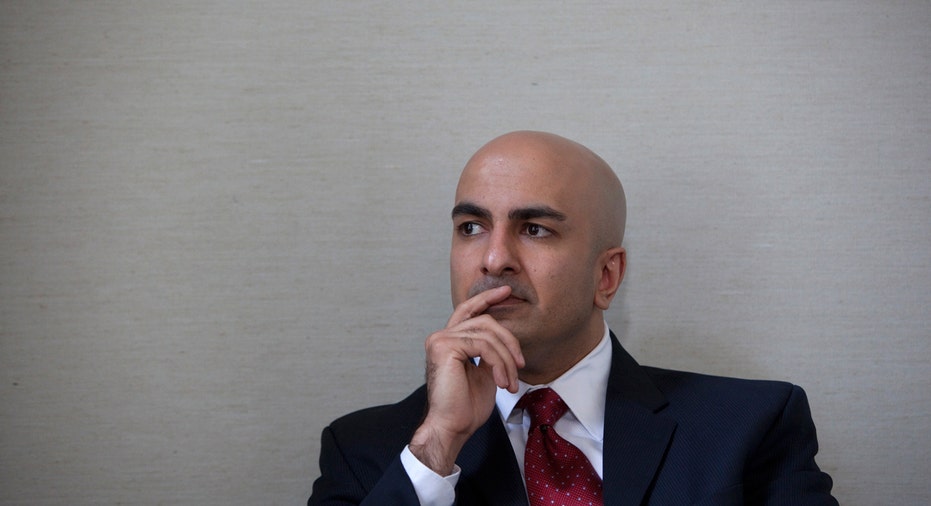Minneapolis Fed Chief Compares Big Banks to Nuclear Power Plants

Saying the largest U.S. banks should be regulated like nuclear power plants, newly-appointed Minnesota Federal Reserve President Neel Kashkari warned of the lingering dangers of ‘too big to fail banks’ and urged Congress to consider breaking them up.
“I believe the biggest banks are still too big to fail (TBTF) and continue to pose a significant, ongoing risk to our economy,” Kashkari said in prepared remarks during a speech at the Brookings Institution in Washington, D.C.
“Now is the right time for Congress to consider going further than (banking reform legislation) Dodd-Frank with bold, transformational solutions to solve this problem once and for all.”
Sounding more like a Democratic presidential candidate than the president of a regional Fed bank, Kashkari said policy makers should consider three options to prevent another financial crisis brought on by a meltdown at a TBTF bank.
The options are: Breaking up the big banks; turning them into public utilities by forcing them “to hold so much capital that they virtually can’t fail (with regulation akin to that of a nuclear power plant)”; taxing leverage throughout the financial system “to reduce systemic risks wherever they lie.”
Kashkari’s speech, his first since taking over at the Minnesota Fed in January, was unusual in that Fed officials generally restrict their public remarks to the monetary policy options that impact the Fed’s dual mandate of price stability and full employment, such as lifting or lowering interest rates.
While the central bank can initiate and enforce regulations that rein in risk taking at the biggest banks – the stress tests, for example -- breaking up them up could only be accomplished by legislation passed by Congress.
Kashkari said the Minnesota Fed is launching a “major initiative” to create an “actionable plan” that would end too big to fail banks. The plan will be made public by the end of the year, but Kashkari conceded that Congress has the final call over too big to fail.
“Ultimately Congress must decide whether such a transformational restructuring of our financial system is justified in order to mitigate the ongoing risks posed by large banks,” he said.
Kashkari played a prominent role in the dealings between the U.S. government and a badly-hobbled Wall Street in the wake of the 2008 financial crisis. First as an aide to then-U.S. Treasury Secretary Henry Paulson, and later as head of the Troubled Asset Relief Program (TARP), the government’s controversial Wall Street bailout.
“Although (too big to fail) TBTF banks were not the sole cause of the recent financial crisis and Great Recession, there is no question that their presence at the center of our financial system contributed significantly to the magnitude of the crisis and to the extensive damage it inflicted across the economy,” Kashkari said.
In his speech on Tuesday, Kashkari said the nation’s biggest banks need to be restructured so that they are capable of making mistakes without threatening the global economy. He noted that the savings and loan crisis of the 1980s didn’t threaten the global economy, and neither did the tech collapse in the late 1990s.
“Large banks must similarly be able to make mistakes—even very big mistakes—without requiring taxpayer bailouts and without triggering widespread economic damage. That must be our goal,” he said.



















